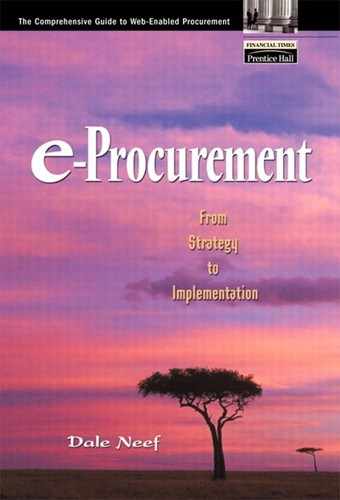The Core Team
The core team should be made up of six to eight representatives from the key cross-functional areas of the procurement process. For ORM projects, that means requisitioning, supplier management, central purchasing, accounting and finance, MIS, and receiving. For indirect projects, a much broader input will be needed, including representatives from inventory management, new product design, forecasting and planning, manufacturing, logistics, and the key supplier community. As process experts, these representatives should thoroughly understand their own functional areas, and even better, the broad procurement process as a whole. Willing to become advocates of the new process and system, they also need to be recognized leaders in their areas, able to persuade their colleagues of the business case and to act as an “ambassador” for the project. Unfortunately, these are the same people who tend to be invaluable to a company on a day-to-day basis, but with strong management endorsement, it should be possible to adjust schedules to ensure that these key experts help design the new approach.
Occasionally, because of the issue of job changes, a representative from human resources is invited onto the team, either as a full-time or part-time member. This has its merits, particularly if the organization is likely to need to negotiate changes in union-agreed roles or levels. However, it is too often assumed that the representative from the human resources department has a broad background in all types of people management issues—including change management experience, organizational alignment, and skills assessment. That may or may not be the case, but it is important that the assumption is not automatically made, and that most of the responsibility for change management remain with the nontechnical program manager and his or her assistants.
The core team will usually be augmented by experts from a management consultancy or from the software provider or VAR, depending on the phase of the project. It is important, however, that this core group of employees sees the project as their responsibility and that they take a lead in extracting best practices from the consultants and software specialists, rather than passively seeing their role as merely explaining the current state to outsiders (consultants), who will then create the future direction for their company.
Subject Matter Experts and Supplier Representatives
Not only will you want various subject matter experts on, or at least available to, the core team, but it is often a good idea to also find the worst maverick-buying offenders and have them provide input as to why non-contract purchasing has been necessary in the past. It is also, of course, very valuable to get input from some of your most important or most progressive suppliers, concerning the vendor point of view.
